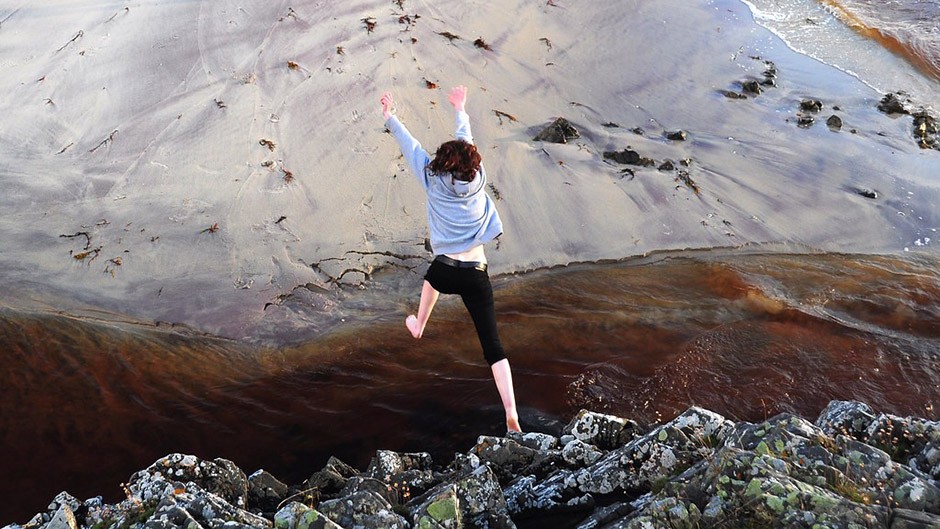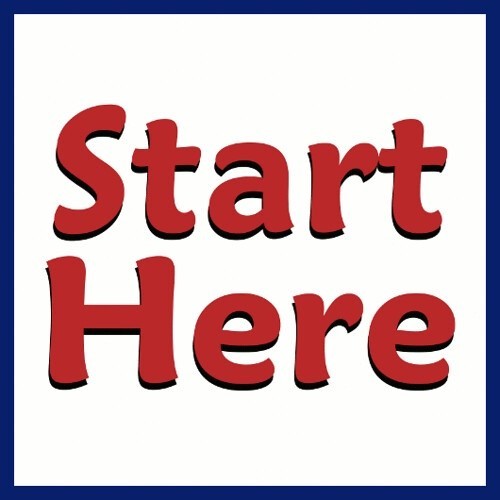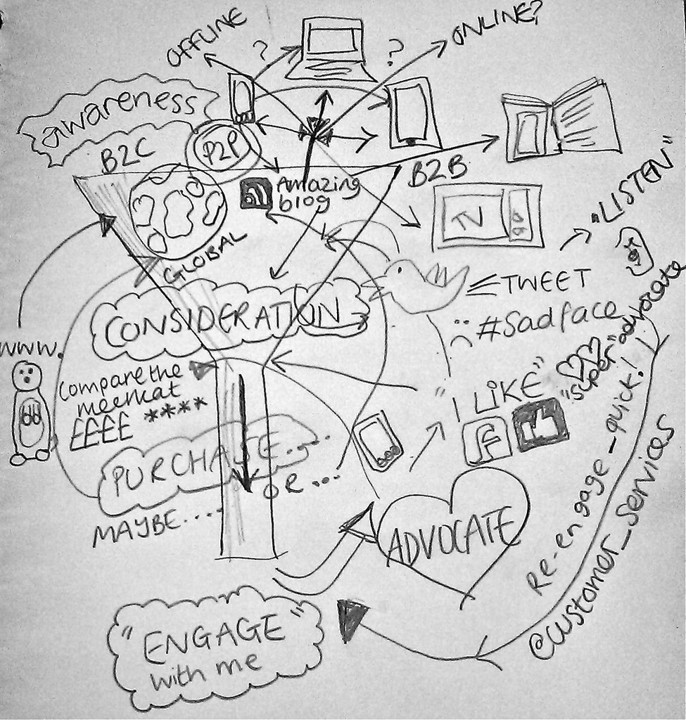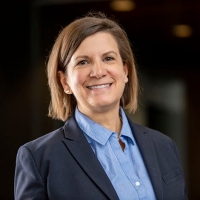Sylvie Ouellette is a doctoral candidate in Chemistry/Biochemistry. She received her Bachelor’s in Journalism from Concordia in 1995. In 2017, Sylvie obtained a BSc (Honors) in Cell and Molecular Biology and then joined the Pawelek lab. Sylvie investigates how bacteria scavenge essential iron from their surroundings. Her findings could pave the way for new classes of drugs to contribute to the fight against antibiotic resistance.
Blog post
Do what you want to do, to become what you want to be

When I applied to the Journalism program at Concordia many, many years ago, I was required to write an English proficiency test. This took place during what doubled as a short information session. At the end of his welcome speech, just before we were to write the exam, Professor Ross Perigoe spoke words that will forever remain etched in my mind: “Most of you will not be admitted to the program. But you don’t have to be. If you want to become a journalist, even without our help, you can become a journalist anyway.”
After journalism school (yes, I got in) I became a novelist. Countless times, upon hearing that I wrote books, people would remark how lucky I was and how much they would like to be writers as well. My reply has always been the same: “Being a writer is easy: all you have to do is sit down and write.” These words, as well as the title of this post, apply to so many pursuits that we could list them forever. Granted, if your dream is to be a brain surgeon or Prime Minister, the endeavour is not as straight forward, but most life goals are achievable if you set your mind to it and remain steadfast in your efforts.

It may very well be within your reach
So if your dream is to be an airline pilot, why don’t you start by getting your recreational pilot’s licence? Or you say you’d like to be a painter, but where are your brushes? (or if you have pieces ready to be exhibited, what steps are your taking towards holding your own vernissage?) You aim to be a philanthropist, but have you at least figured out the basics of raising money for the causes you hold dear? If stand-up comedy appeals to you, why aren’t you already making your own YouTube videos?
Too many of us are mistaken in the notion that we require specific training or talent or a sheer stroke of luck to become what we otherwise only dream of. Or we just postpone it indefinitely, always pondering but never doing anything about it. However, most of the time the only requirement is that we actively get started.
I was reminded of this recently. As you read these words, the next cohort of the Concordia Public Scholars are about to start their training. Ten individuals selected out of a few dozen applicants. During the application period, I was approached by interested PhD candidates preparing their dossier. All of them knew how valuable the skills and training they would gain could then help build their networks and launch their burgeoning careers, so hopes were high. Sadly, none of these people, although eager and qualified, made the cut. Disappointment was crushing. “I so wanted to become a Public Scholar…” they all said.

Just do it!
But then it dawned on me: even if you were not admitted to the program, why not do it anyway? If you are eager to build a network and showcase your expertise, there are many ways to go about it, so long as you first get going. One quick look at the description makes it obvious that the elements of the Public Scholars’ mandate are within anyone’s reach:
1- Participate in the Three-Minute Thesis competition: that’s open to all students, either at the master’s or PhD level. So why haven’t you signed up yet?
2- Maintain a presence on social media: don’t you already have a Twitter or LinkedIn or Facebook account? If not, what are you waiting for? Tailor it into a platform that showcases your expertise and knowledge (yes, there is more to social media than pictures of your cat or your last vacation)
3- Contribute entries to this blog: ok, so maybe not *this* blog, but there are dozens of blogs all over the internet that will welcome your contributions. Chances are, you probably have a few in mind from those to which you are already subscribing. And while we’re on the topic, who is stopping you from creating one for yourself? How about hosting your own vlog or podcast?
4- Position at least one opinion piece in a newspaper or publication linked to higher education: outlets like The Montreal Gazette, The Globe & Mail, The Conversation, and many others, will be happy to accept a well crafted, solidly built position statement highlighting your expertise. That requires a bit of practice — and for this one you might need training — but as with many pursuits in life it all starts by first doing your homework. Read what’s already out there, figure out how opinion pieces are crafted, google the ins and out of writing position statements and create your own. Like I stated above: sit down and write.
5- Deliver at least one knowledge mobilization event: again, what’s stopping you from going ahead? Chances are you have attended similar events in the past, and from high schools to CEGEPs to community cafés or other institutions, outlets abound if you have something of interest to convey. As part of the 2020–2021 Public Scholar cohort, I felt that I was shortchanged on that front due to the COVID situation which precluded us from hosting in-person events. Thankfully, we found ways around it through the technology at our disposal. But as soon as restrictions are lifted, expect to see me hosting a panel or round-table discussion, even after my mandate expires. And there is nothing stopping you from doing the same.

Start now — the time you waste will never come back
What I just described can be applied to other endeavours, whatever your goal. Or it may be that your dream is not at all related to your field of study. You might be a Poli Sci major who dreams of moving to Peru to breed lamas. Or an engineering student who is tempted to take a year off to go sailing around the world. Whatever your project, break it into its basic components, act on what is feasible now and plan the rest as it unfolds. At the very least, get started.
Too many people wait for opportunities to be offered to them; all it takes is the will to create them for yourself.
About the author


